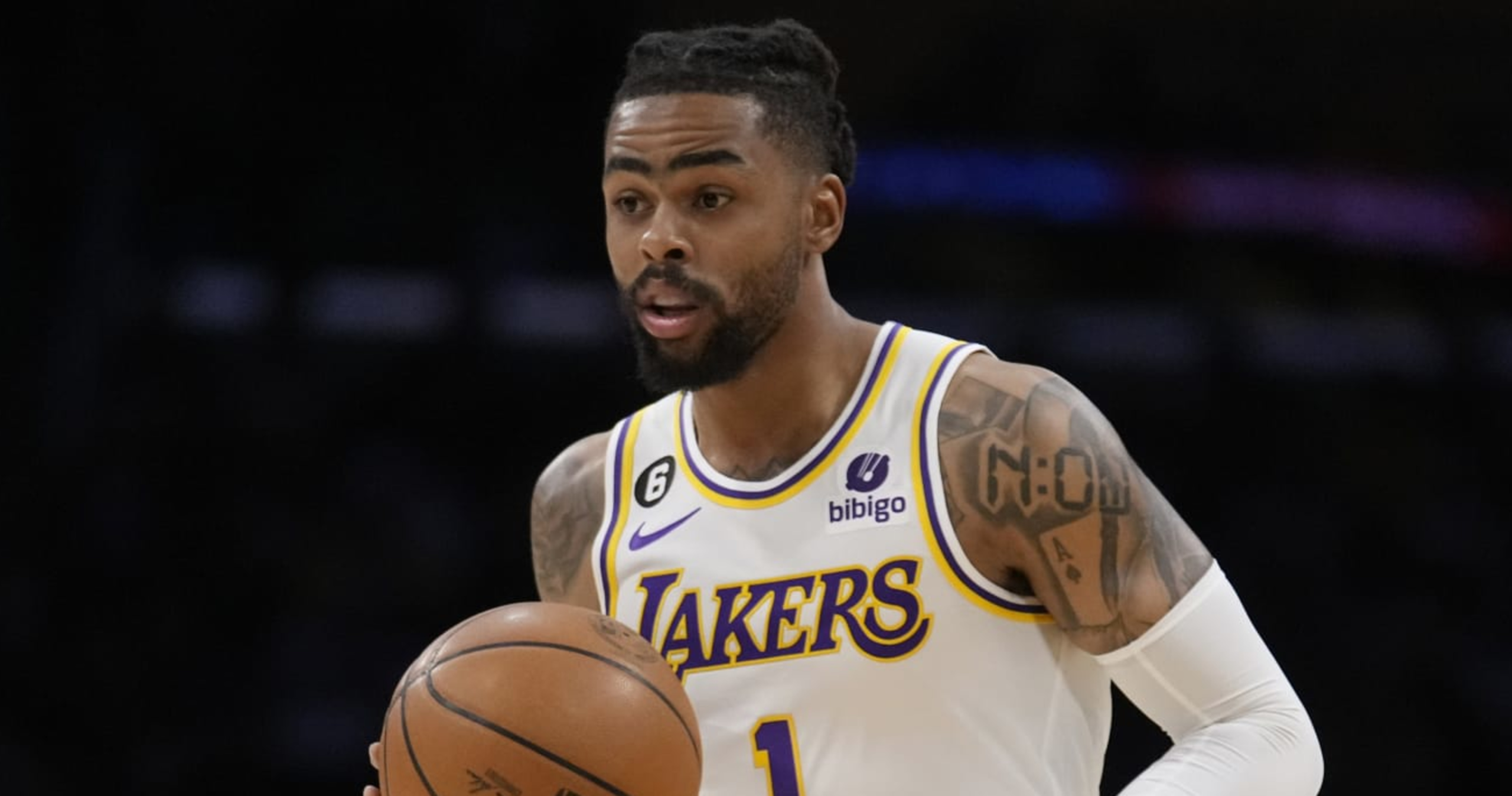Sports
NBA Starters Who Should Come Off the Bench – Bleacher Report

Some NBA players perform best as starters. Others, as key rotation members off the bench. Too often, players are stuck in the wrong roles either due to their team not having better options, a history of being in said role or a combination of both.
Due to changes in free agency, the draft and trades along with updated lineup data from last season, it’s become clear that some teams need to make a change.
The following five players started the majority of their games in 2022-23, yet should no longer be in their team’s opening fives.
Set to turn 34 shortly, Morris should make the transition from everyday starter to backup big this season.
He’s started all 119 of his games the past two years for the Clippers, although Morris saw dips in his scoring, rebounding, assists, field goal percentage and three-point percentage last season. A slight regression should be expected again going into Year 13.
This is an old Clippers team (28.9 average player age, second only to the Golden State Warriors), despite trading for K.J. Martin and drafting Kobe Brown. Moving Morris to a smaller role off the bench would help open up more opportunities for the rare young talent actually on the roster, a necessary move to keep Los Angeles as a top-six seed in a loaded West.
The Clippers were better when they played smaller last season as well, especially with lineups featuring Kawhi Leonard at power forward and Paul George at small forward. With their best players at the forward spots, L.A. had a net rating of plus-12.2 (98th percentile, via Cleaning the Glass) compared to plus-3.4 (74th percentile) with Leonard at the three and George playing the two.
Moving Morris to the bench, letting Leonard start at power forward and adding another guard makes the Clippers a little faster, which helps play into Russell Westbrook’s skill set as well.
Morris can still be a helpful rotation vet on this team even at age 34, although his days as a starter should be over.
After coming off the bench for most of his Boston Celtics’ tenure, Rozier has started all 268 of his games for Charlotte the past four years.
If the Hornets want to end the NBA’s longest playoff drought, however, they need to make a change.
Charlotte could have a significant size advantage over most teams on any given night with 6’7″ point guard LaMelo Ball leading the charge, although playing Rozier (6’1″, 190 pounds) next to him tends to negate this opportunity. While Ball is one of the best passers in the NBA, playing an undersized combo guard who’s shot just 41.7 percent overall for his career next to him is a waste as well.
Rozier connected on a lousy 28.9 percent of his three-pointers off passes from Ball last season while the Hornets were better when their two leading scorers were apart. Charlotte’s net rating jumped 3.6 points per 100 possessions when Ball was on the floor and Rozier sat, compared to when both were in the game together.
Coming off a 27-win season, the Hornets should be prioritizing youth as well.
Trying 6’9″ Brandon Miller at shooting guard would give the Hornets a supersized backcourt and allow Rozier to serve as sixth man and the team’s backup point guard after Dennis Smith Jr. left in free agency for the Brooklyn Nets.
The Ball-Rozier backcourt pairing just hasn’t been successful enough to continue, although the 29-year-old could thrive as a leading playmaker in non-Ball minutes off the bench instead.
The Mavericks could not live with their own failure, which has led them back to Powell once again as the projected starter at center.
Powell, 32, is a fine, yet limited player. In 64 games as a starter he averaged 6.7 points, 4.0 rebounds and 0.3 blocks, all with an average shot distance of just 2.5 feet, providing this offense with no floor-spacing ability. Powell’s simply not a starter in the NBA, especially in a Western Conference that features bigs like Nikola Jokić, Anthony Davis, Domantas Sabonis, Karl-Anthony Towns, Zion Williamson and now Victor Wembanyama.
Dallas likely knew this last offseason when they went center shopping, only to wind up with JaVale McGee as a replacement. That experiment lasted just seven games, as McGee went from starter, to bench, to out of the rotation and now waived and stretched by the franchise.
While this roster now features No. 12 overall pick Dereck Lively II as the center of the future, Dallas still needs a stop-gap option that can fill in for a season or two until the 19-year-old is ready to assume the position full-time.
The answer to who should start over Powell isn’t even on the roster, as Richaun Holmes and Maxi Kleber are the only other potential options.
The Mavericks should still be exploring trades for veteran upgrades (Clint Capela, Jusuf Nurkić, etc.) to start over Powell and get the seat warm for Lively, especially if Dallas wants to get back into the crowded West playoff picture this year.
Grimes has done nothing wrong to be demoted here, as he’s coming off a fine first season as a full-time starter with the Knicks.
An ideal 3-and-D wing at 6’5″ who averaged 11.9 points, made 38.6 percent of his threes and played good defense in his 66 starts last season, Grimes did everything New York asked.
A move to the bench has nothing to do with Grimes’ play and everything to do with the level of success the Knicks had with Josh Hart last season.
When Grimes shared the floor with Jalen Brunson and Julius Randle, New York had a ho-hum net rating of plus-1.6. With Hart in the game with Brunson and Randle, this number jumped all the way to plus-18.1 (100th percentile, via Cleaning the Glass).
Hart is a better, more polished all-around player right now than Grimes for a Knicks team that needs to build on a second-round playoff showing. He’s also signed for $93.9 million over the next five years while Grimes has two seasons and just under $7 million remaining on his rookie deal.
Finding a role and good minutes for Grimes is still important, but Hart’s impact on winning should force his way into the starting lineup.
This may not be a fun conversation to have between Russell and head coach Darvin Ham, although moving the 27-year-old to a sixth man role may be the best thing for both him and the franchise.
Giving Gabe Vincent a three-year, $33 million fully guaranteed contract while Russell got just one year plus a player option ($36 million total) may have signaled the Lakers’ lack of confidence in the latter, especially after he was removed from the starting lineup in Game 4 of the West Finals against the Denver Nuggets.
Of the two, Russell has the higher ceiling but also the lower floor. In a starting lineup that already features LeBron James, Anthony Davis and Austin Reaves, the Lakers would be better off with Vincent’s steady hand at point guard.
The move would also be good for Russell, giving him more scoring opportunities by coming off the bench with the second unit. His usage rate with the Lakers (22.6 percent) was a far cry from his All-Star season with the Brooklyn Nets in 2018-19 (31.9 percent).
Russell can still explode for some random 30-point nights and inject some energy off the bench with his scoring chops, all while Vincent (1.4 turnovers per game) helps play mistake-free basketball in the opening lineup while letting the stars shine.









